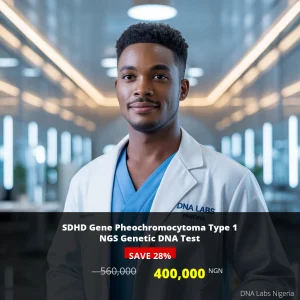Stag1 Gene Prostate Cancer NGS Genetic DNA Test
Introduction
The Stag1 Gene Prostate Cancer NGS Genetic DNA Test is an advanced diagnostic tool that leverages Next-Generation Sequencing (NGS) technology to detect genetic mutations linked to prostate cancer. This test is crucial for individuals with a family history of prostate cancer or those exhibiting symptoms, providing insights that can lead to early detection and tailored treatment options.
What the Test Measures
This genetic test specifically analyzes the STAG1 gene, which has been implicated in prostate cancer development. By identifying mutations in this gene, healthcare providers can better understand a patient’s risk and guide treatment decisions.
Who Should Consider This Test?
- Individuals with a family history of prostate cancer.
- Men experiencing symptoms such as difficulty urinating, blood in urine, or pelvic discomfort.
- Patients with known genetic predispositions to cancer.
Benefits of Taking the Test
- Early detection of potential prostate cancer risk.
- Informed decision-making regarding treatment options.
- Personalized healthcare based on genetic insights.
- Peace of mind for patients and their families.
Understanding Your Results
Results from the Stag1 Gene Prostate Cancer NGS Genetic DNA Test will provide information on whether any mutations were detected in the STAG1 gene. A genetic counselor will help interpret these results and discuss potential next steps.
Test Information and Pricing
| Test Name | Discount Price | Regular Price |
|---|---|---|
| Stag1 Gene Prostate Cancer NGS Genetic DNA Test | 400,000 NGN | 560,000 NGN |
Booking the Test
To book the Stag1 Gene Prostate Cancer NGS Genetic DNA Test, please contact us at +2348110567037. Ensure you have your clinical history ready and consider a genetic counseling session to map out your family history regarding prostate cancer.
Additional Information
Turnaround time for results is approximately 3 to 4 weeks. The sample required can be blood, extracted DNA, or even one drop of blood on an FTA card. Prior to the test, it is essential to have a comprehensive clinical history and a genetic counseling session to draw a pedigree chart of family members affected by prostate cancer.
Consult with an oncologist to determine if this test is right for you and take proactive steps towards your health today!







